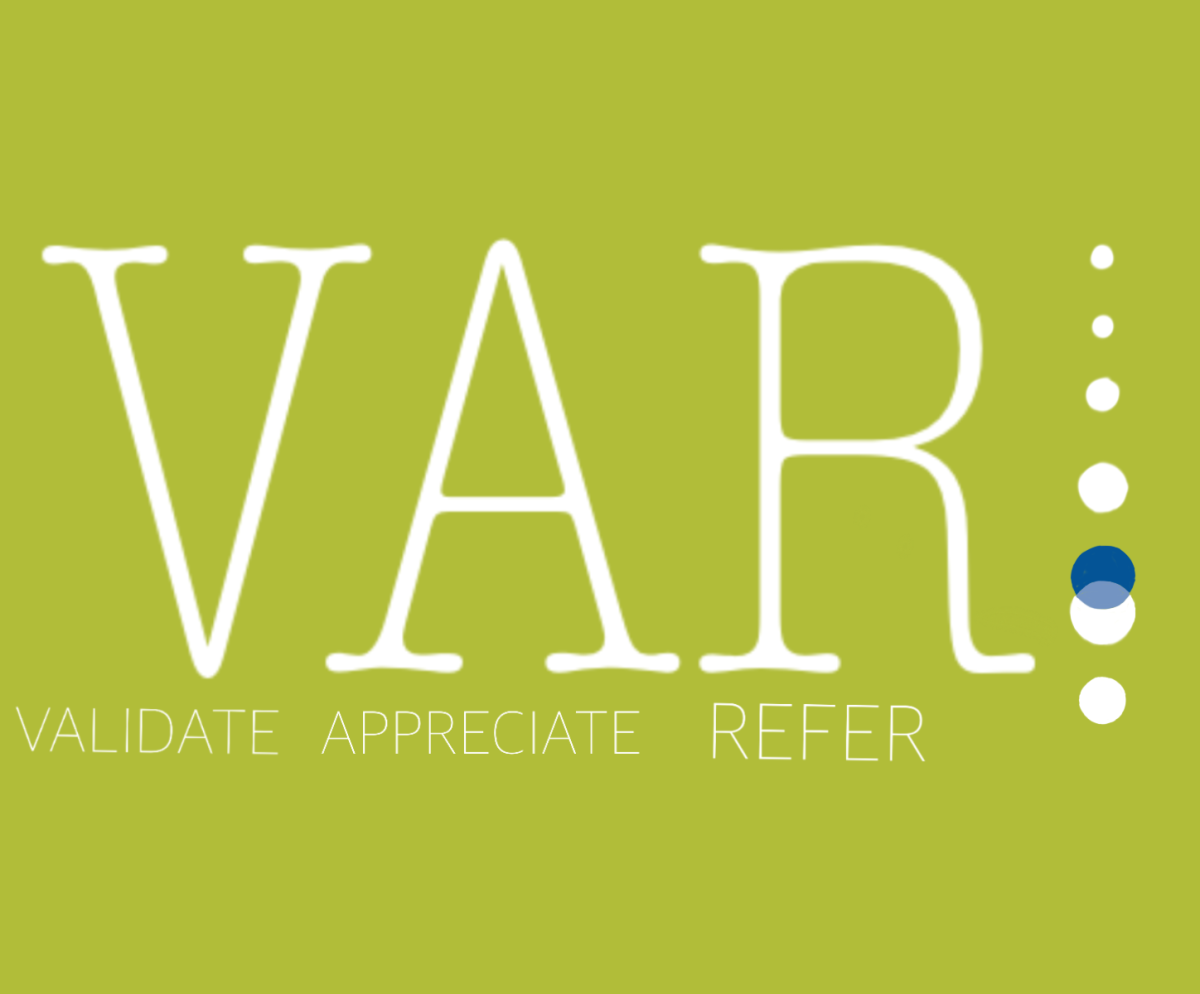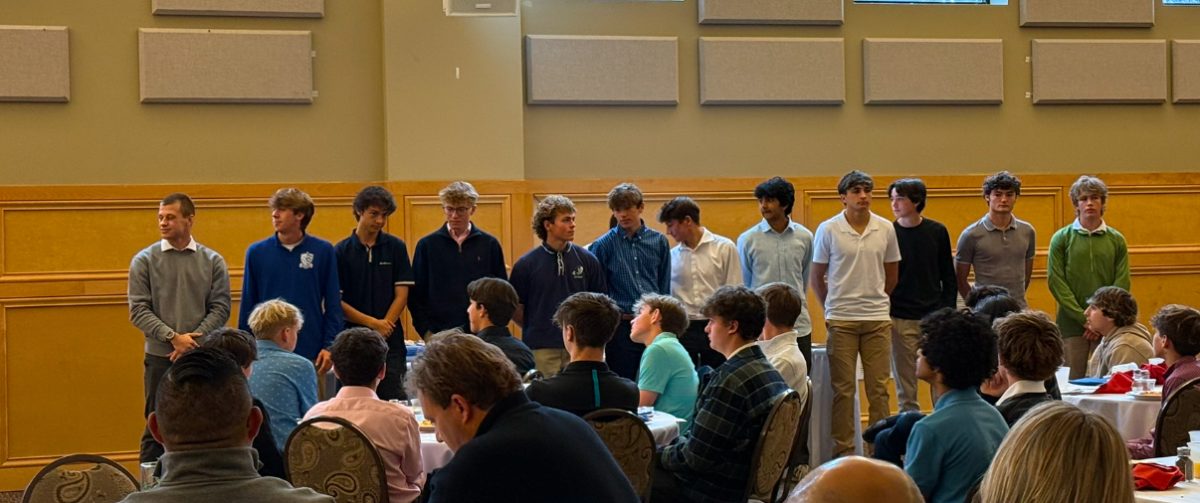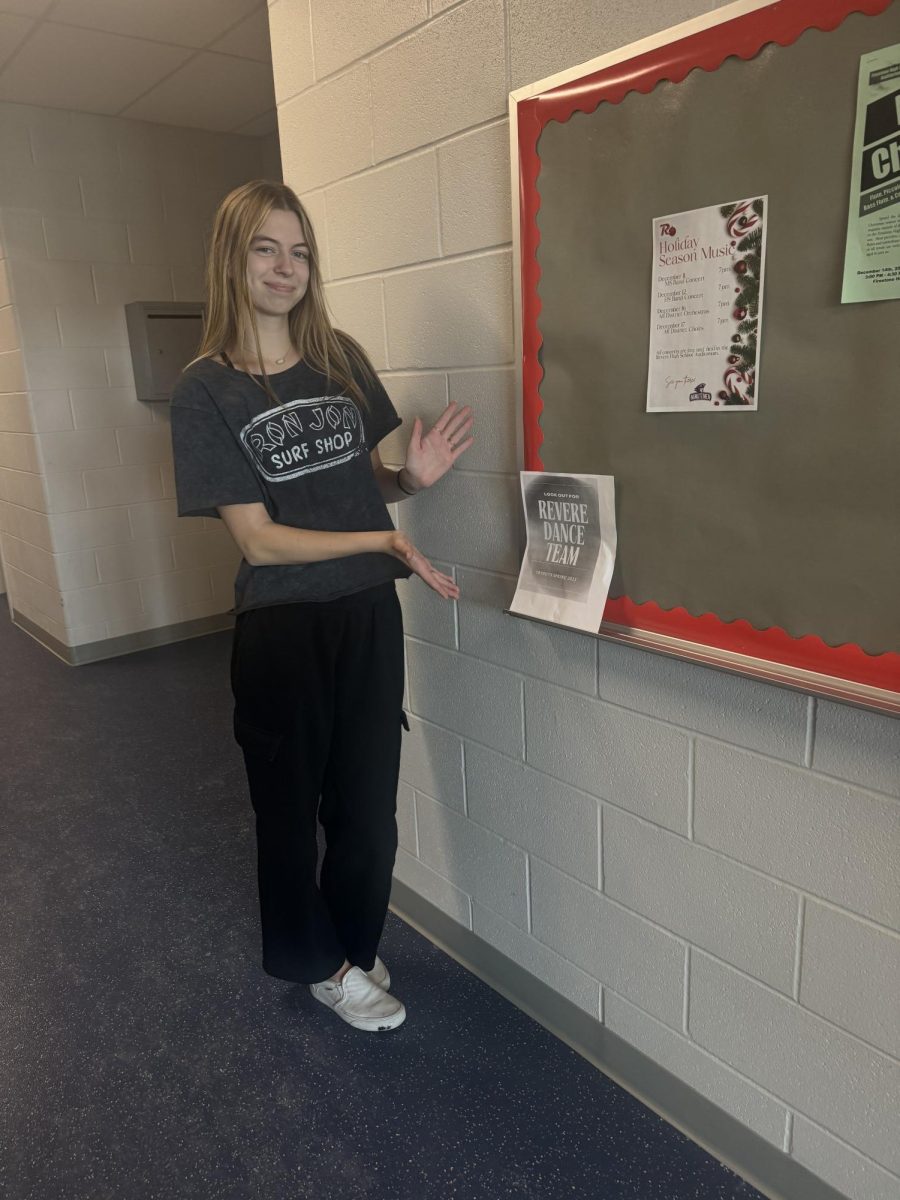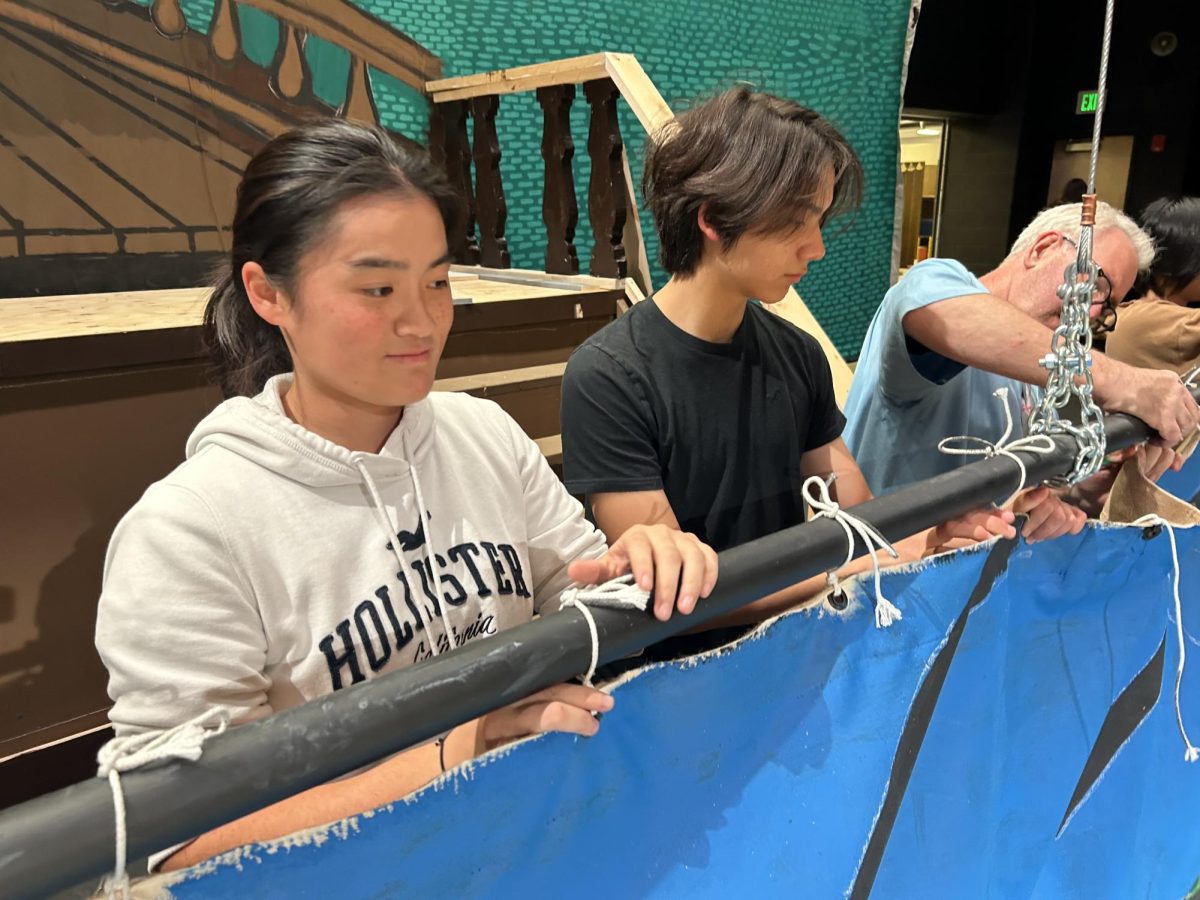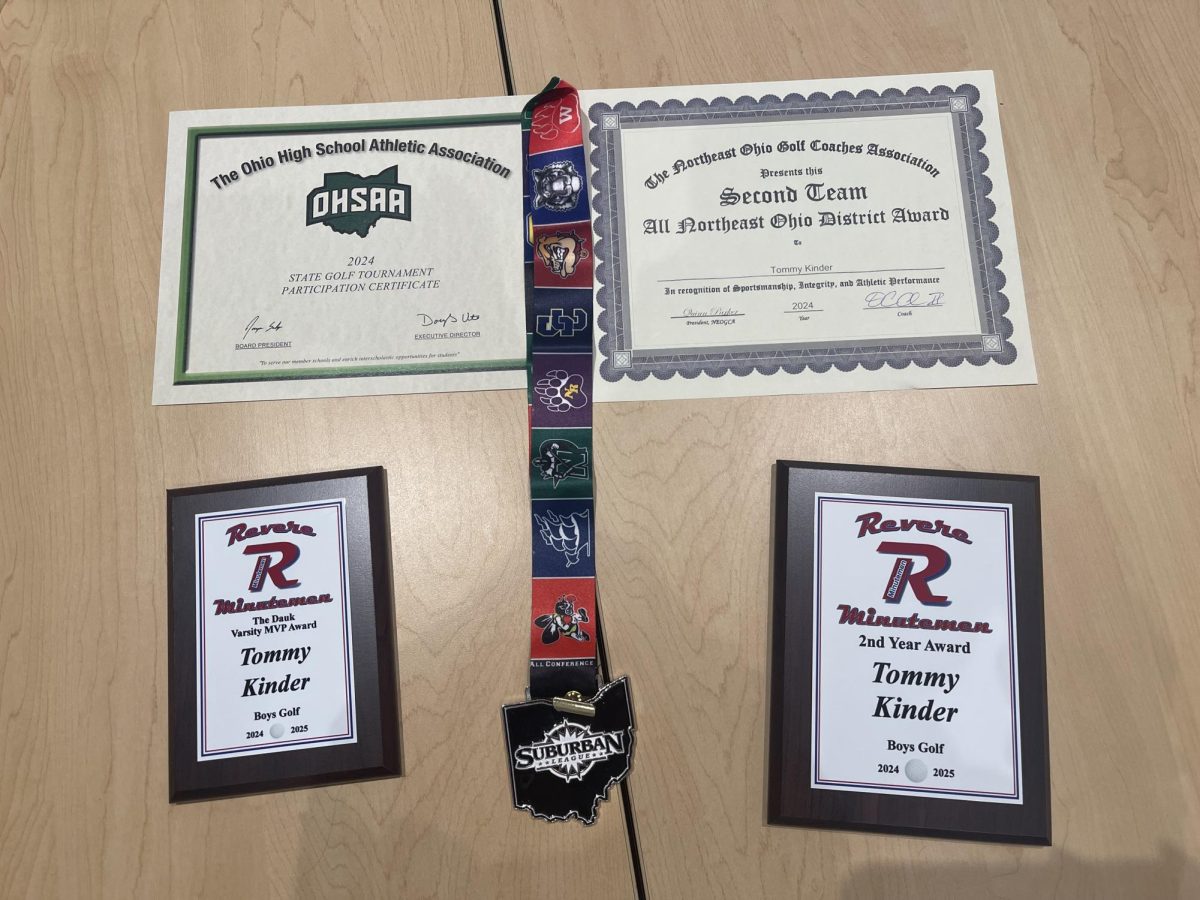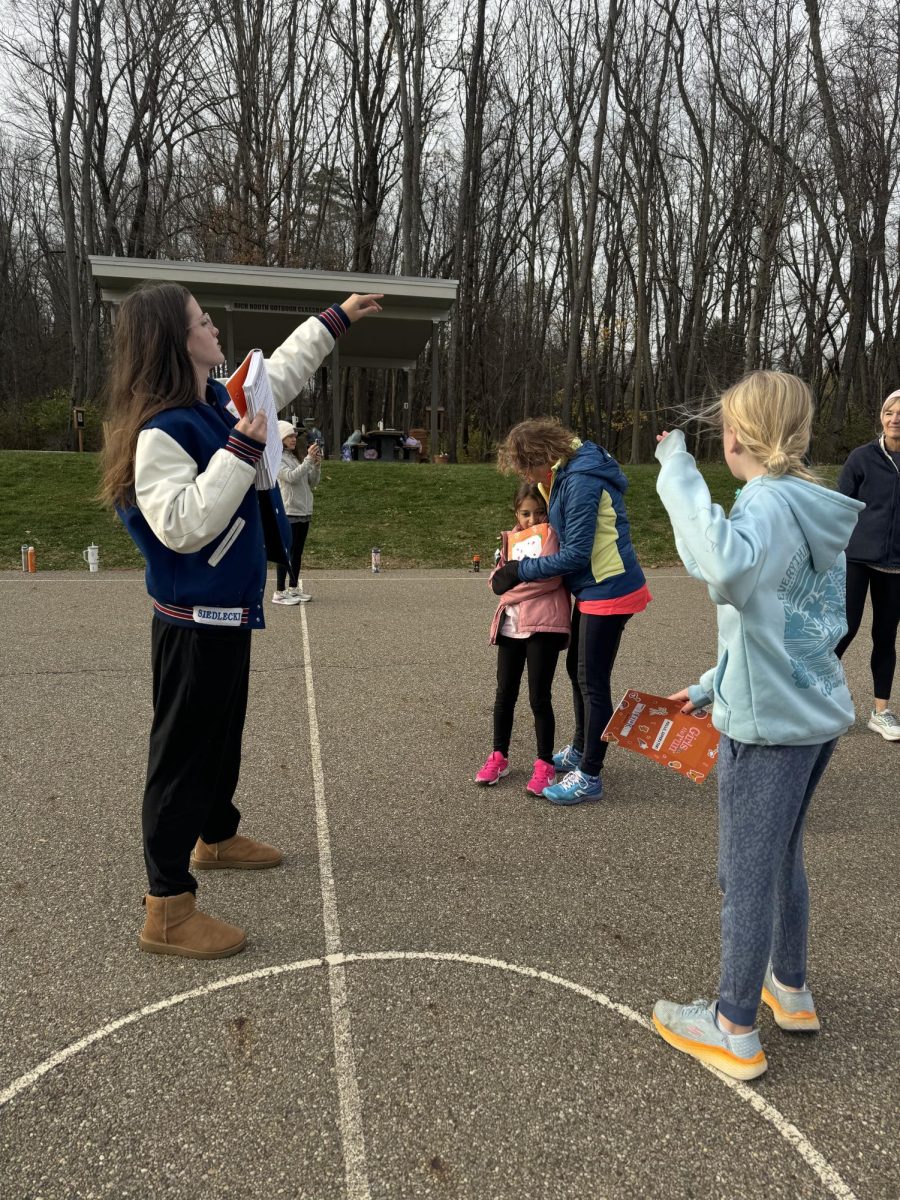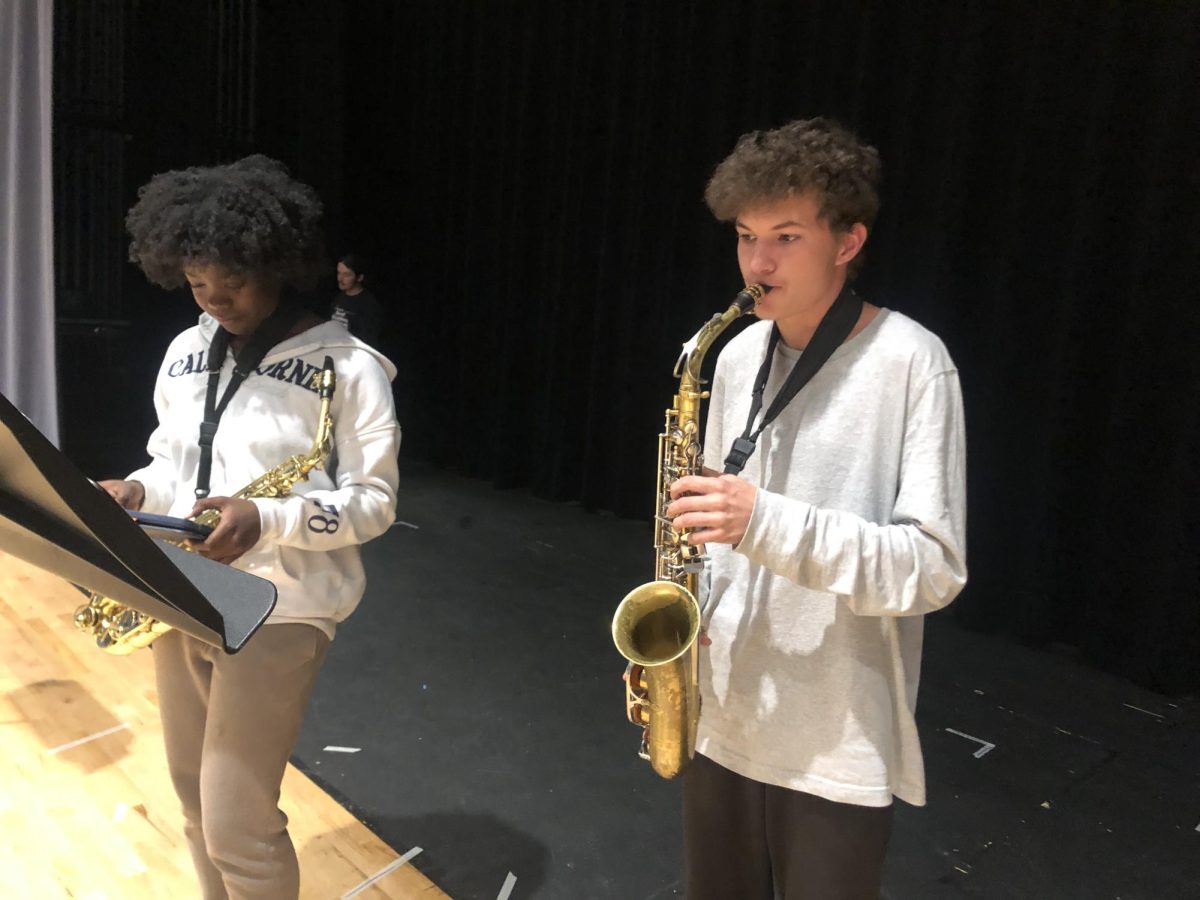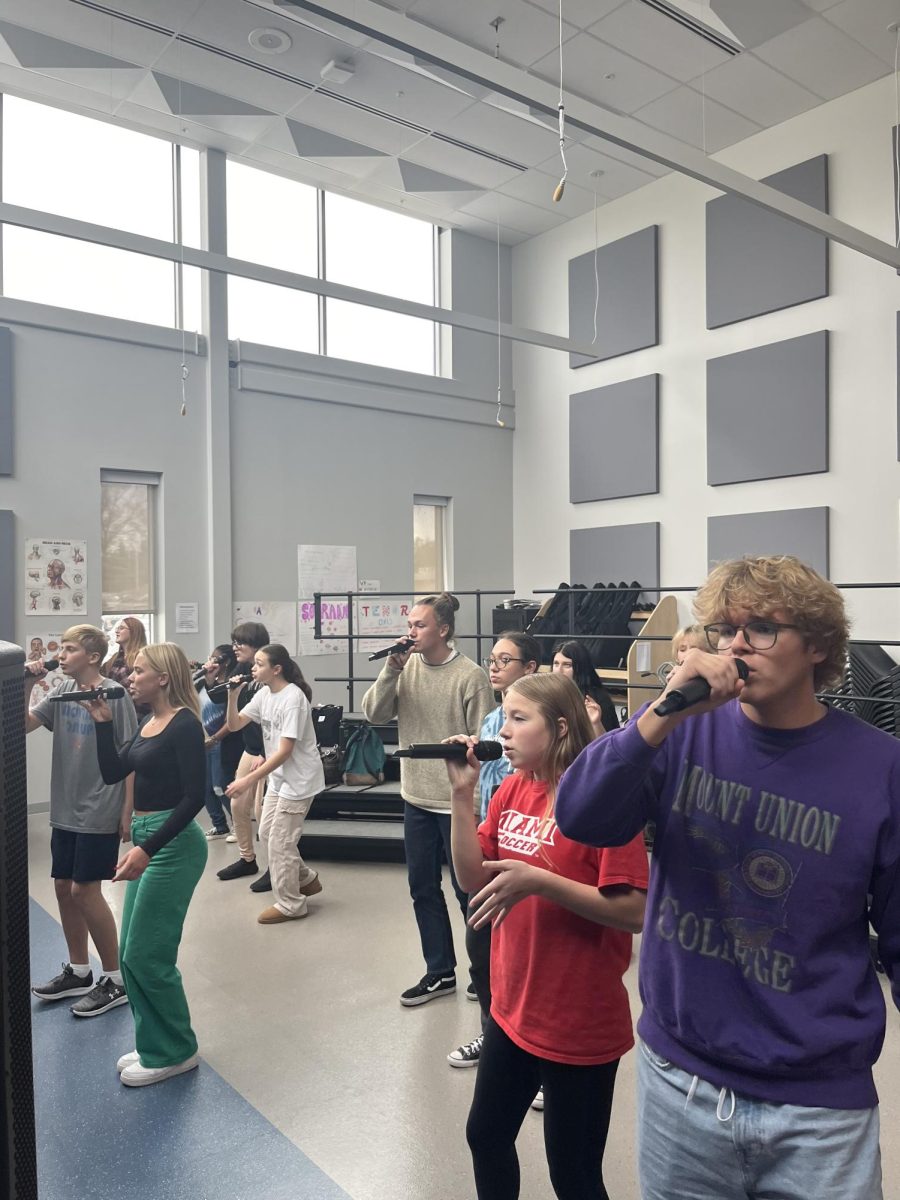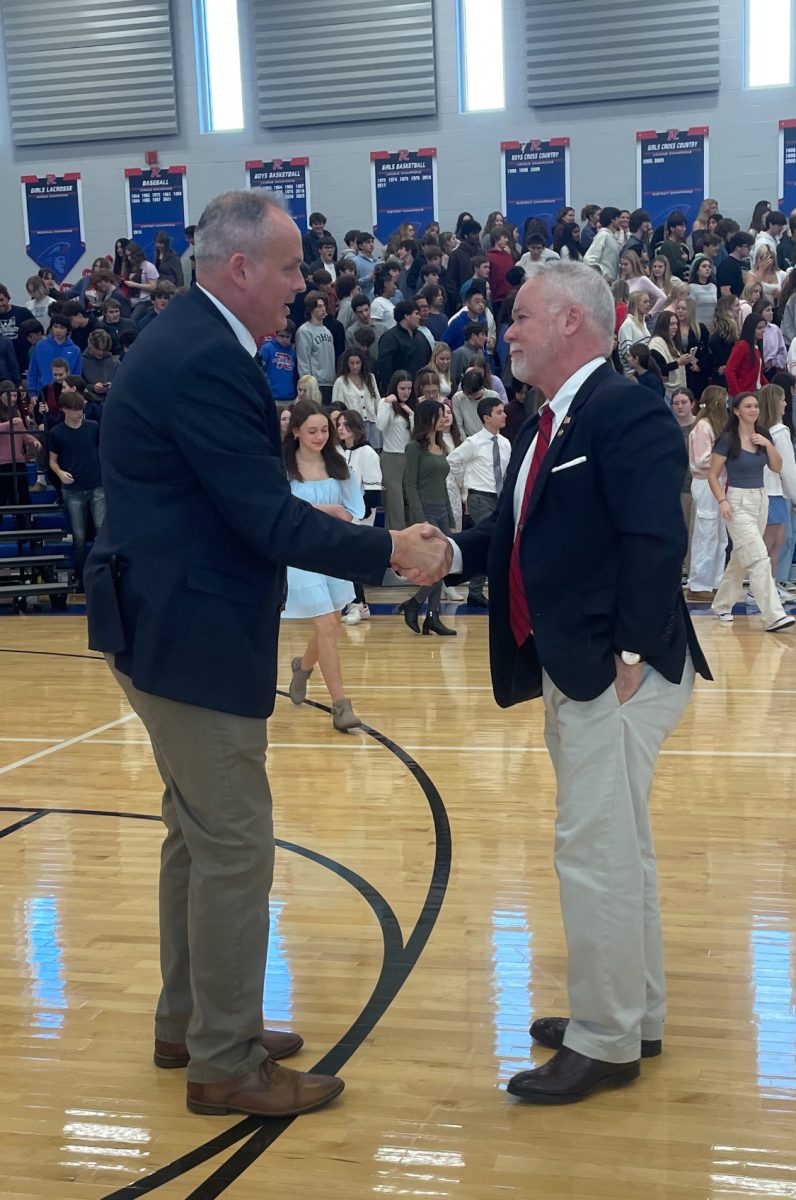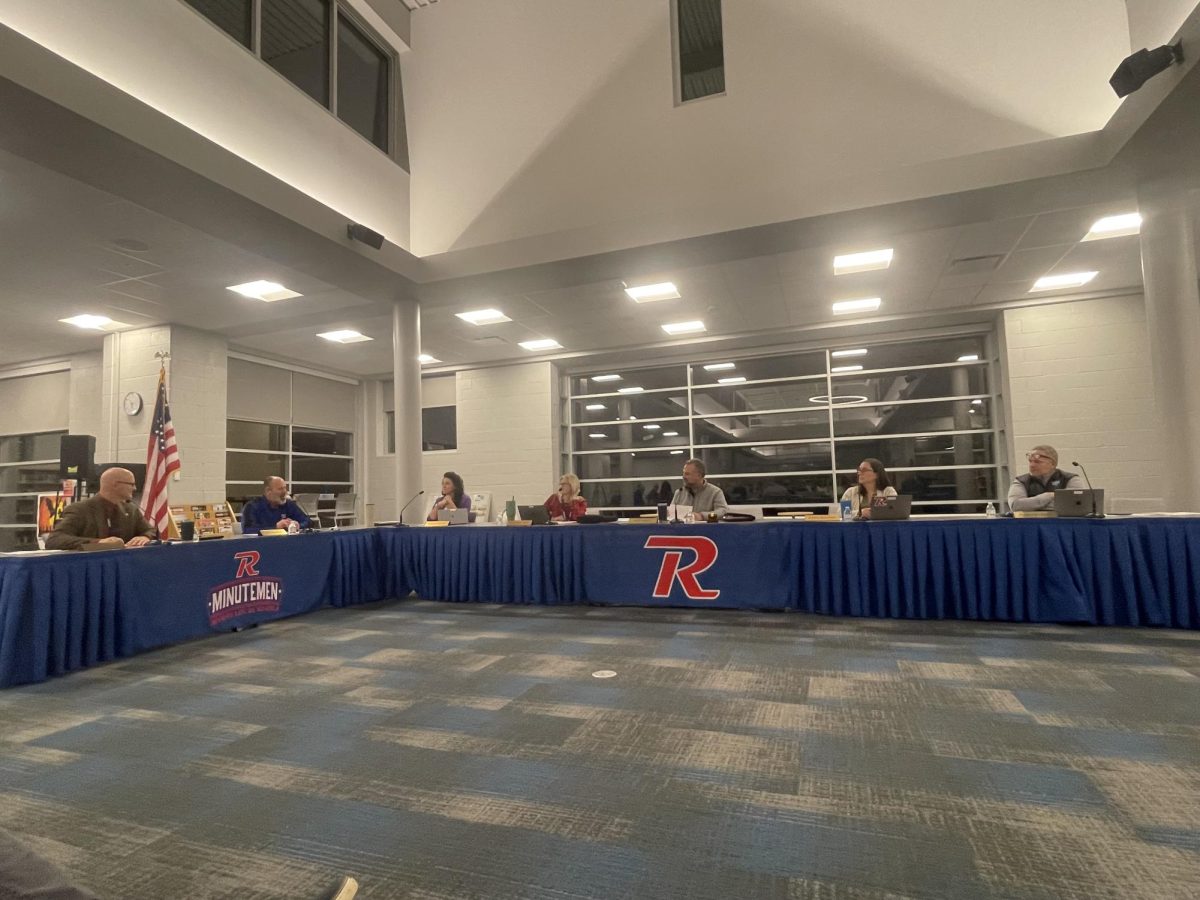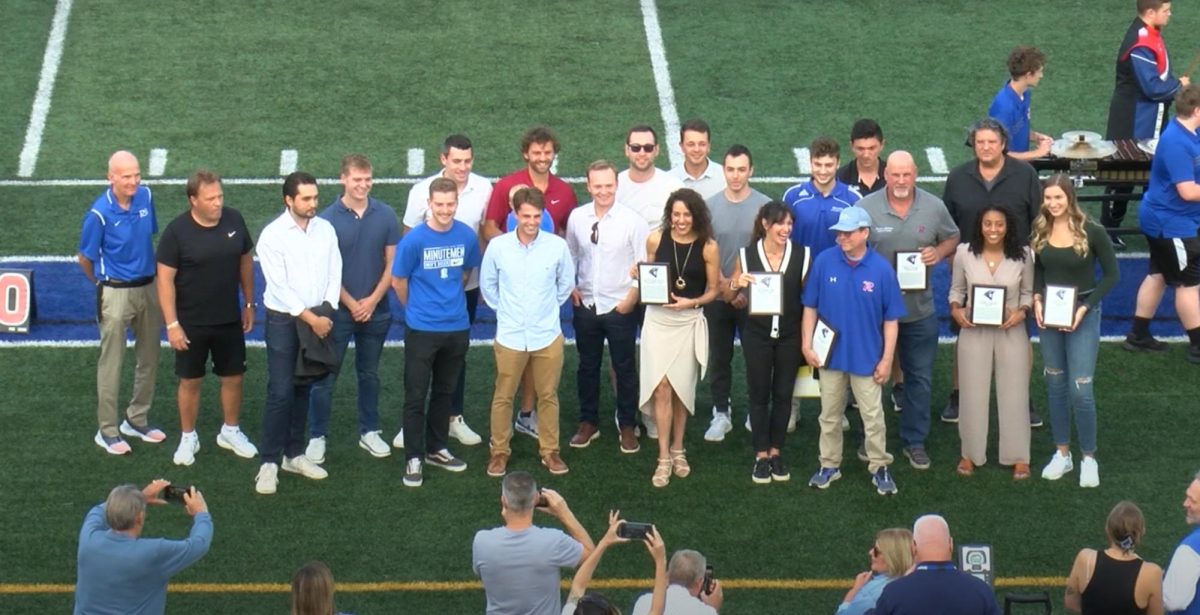After the school bell rang for fourth period, most students headed off to their lunch period, but one Wednesday, a small group of students headed to the library instead. There, Revere High School counselor, Emily Rion, greeted the group with a table full of food from Olive Garden.
After filling their plates with pasta and bread, the students took seats around the library and listened to a speaker begin his presentation on mental health. Throughout his presentation, he stopped to ask his audience questions, creating an interactive environment. The students were even able to practice his techniques at the end of his presentation.
On November 15, Active Minds speaker Aaron Machbitz visited Revere High School and spoke about a conversation technique known as VAR. VAR stands for Validate, Appreciate and Refer.
Machbitz has involved himself in Active Minds for two years. He travels around the country, giving presentations about VAR. Machbitz gave two presentations at RHS: one for a small group of students and another for the RHS staff. The presentation was open to all RHS students, but they had to fill out a field trip form as it was during fifth period.
Machbitz began his presentation by explaining a little bit about what VAR is and why he believes people could use it in everyday conversations to build relationships with others.
“VAR is sort of that initial conversation that you’re going to have to break the ice, to step into something that might be awkward, to talk about something that’s hard for someone, to connect deeper with people. That’s really what we’re trying to talk about and that’s sort of the basis of mental health,” Machbitz said.
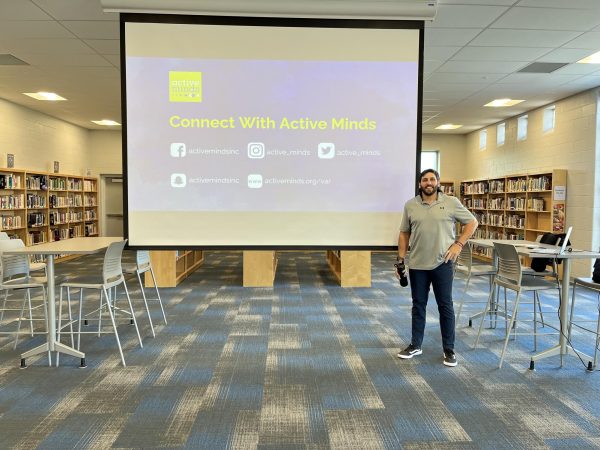
The fact that validating is the first step is not an accident. It is an important factor in gaining one’s trust and respect. Machbitz explained why validation comes first in the VAR process.
“This idea of validation being the first step of VAR is very important because it allows for you and the person to build this level of trust. If I’m trying to get to the root, the honest answer, I have to make this person feel like they’re seen and they’re loved and they’re heard and I do that by simply acknowledging them as a real person,” Machbitz said.
Building this level of trust is essential with the VAR method. Without trust, it is hard to get to the following two steps. Machbitz explained why validation is a crucial part of the process, and how the other facets of VAR cannot function without.
“We’re going to get to a point in the conversation where we may actually be able to help them but we have to start with validating their feelings and experiences or else we’re never going to get anywhere else,” Machbitz said.
If someone is taking the validating step and does not understand the struggle the other person is going through, it is still important to validate their feelings. Machbitz talks about how everyone’s issues are different and all are valid, hence why it is important to recognize a peer’s difficulties, no matter how big or small.
“Maybe the thing [someone is] struggling with isn’t something that I would struggle with, but it doesn’t make it less important, it doesn’t make it less valid,” Machbitz said.
Validating a peer struggling with any facet of life can make all the difference in supporting a friend. Machbitz gave examples in his presentation of what one could say to help validate someone’s feelings.
“That sounds difficult, that makes sense, I’m sorry you’re going through that, that’s a lot to be dealing with or simply I believe you,” Machbitz said.
After validating, Machbitz explained the second step of the process; appreciate. It is all about appreciating that a person was able to speak about what they are struggling with.
“We can appreciate that courage. We can appreciate that honesty . . . we’re just simply acknowledging them for telling us the truth,” Machbitz said.
Though honesty can appear intimidating, an honest expression of feelings can strengthen ties greatly. Being honest in conversation is how Machbitz is able to build trust. He expanded on how he successfully creates lasting relationships with his peers through open communication.
“How do we build great relationships? We have to be vulnerable, we have to be courageous and truthful,” Machbitz said.
The last step in VAR is refer. This step allows the person to professionally work towards a better mental state. Machbitz refers the person to a coping method that will help them with what they are dealing with.
“We have to refer them to skills and support. We have to get them the help they need or start getting them on the path to start taking care of their mental health a little bit more adamantly,” Machbitz said.
To refer someone else to get the help they need, Machbitz explained that the person referring should also have good ways they cope with their mental health themselves. If the person struggling is not able to come up with ways to get better on their own, Machbitz is able to give them suggestions based on methods he uses to feel better.
“People ask you ‘What do you do?’,‘What makes you feel better?’, ‘How can I help you?’ . . . you have stuff in the back of your mind you can present to someone if they don’t have [a solution],” Machbitz said.
Machbitz provided what he thinks is his most helpful tip for the third step in the process. This can help deepen not only the supporter’s understanding, but also the person’s understanding of what may be the source.
“The most important question that we can ask is . . . ‘What would be helpful for you in this moment?’. Now they may not have an immediate answer for this question, but through more conversation, through more dialogue, they may have an answer,” Machbitz said.
VAR is not just something that one can practice with other people, it can also be used on a personal level. This could help someone identify a negative habit within themselves and get the help necessary.
“This idea of validate, appreciate and refer isn’t just a conversation. Its something we can do ourselves because we first have to acknowledge in ourselves that we’re struggling before we’re going to tell anyone else,” Machbitz said.
Machbitz believes that most people’s thoughts about mental health may be misconstrued. He made a point to say that although some people have serious mental illnesses, everyone deals with mental health, whether it be good or bad. If people start acknowledging this, VAR will become an easier tactic to use.
“When they hear ‘mental health’ they immediately think; crazy, depressed, sad. . . . Those sorts of things are what people think about when they think mental health, but our job is to sort of de-stigmatize that by thinking about mental health in a different way. I think about mental health as how you think, feel and act,” Machbitz said.
Machbitz explained that if people were able to address issues with these three factors (thinking, feeling and acting), their mental health could improve. Taking action to prevent depressive feelings in the future proves beneficial.
“We don’t have to wait to take care of ourselves when we become sick, we take care of ourselves now, early, often. So when the inevitable set back or challenge comes that we are more capable to handle those things,” Machbitz said.
Another way that Machbitz thinks could help people’s mental health is using his method he calls “flipping the switch”. This method has three parts to it: body language, deep breaths and self talk. Machbitz went into detail about the body language aspect of his method.
“Chest up, shoulders back, imagine someone’s pulling a string at the top of your head and you’re standing taller. Why is that important for your mental health? Because your body and your mind go by direction. So things that you do for your body work for your mind and things that you do for your mind work for your body and so we think about our body language,” Machbitz said.
The second part of Machbitz’s method is just taking one big deep breath to calm himself down. The last part is talking to himself in a positive manner instead of talking down. He explained the types of situations someone could apply this method.
“Say something to yourself that’s positive and kind. ‘You can do this’ at any moment during the day, whether you’re sitting down about to take a test, or you’re about to have an important conversation, or whether you’re walking to your next class, or whether you’re just feeling a little bit anxious,” Machbitz said.
Going along with “self talk,” Machbitz explained that he likes to congratulate himself on his small wins, and how it helps him repeat these good habits.
“If you’re like me I’m really good at telling myself I did a bad job . . . [but] we want to acknowledge ourselves for doing [good things]. We get up and go to the gym, we get a good grade, we cross something off of our lists. How can we then, in that moment, in five seconds, without having to buy something or do anything, celebrate ourselves in that moment? For me I’ve started telling myself ‘that’s like me’,” Machbitz said.
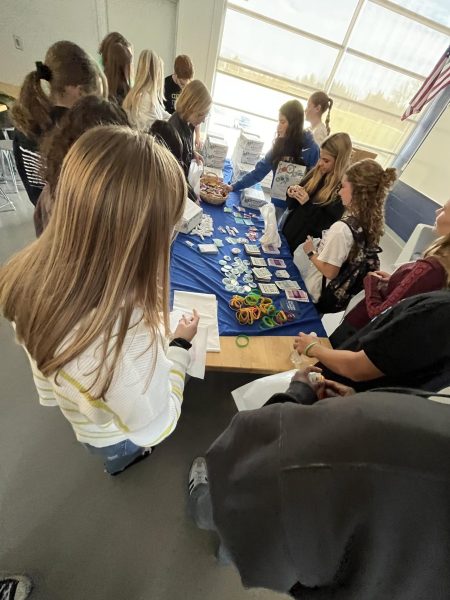
Revere High School guidance counselor and Active Minds adviser Emily Rion viewed this speech, and talked about the negative stigma surrounding mental health.
“The world of psychology and mental health has always been seen with a lot of negative connotations. And I think for the past maybe decade or so, things have gotten a little bit better with that. But it is still very much in its infancy in regards to being open about talking about mental health,” Rion said.
Rion talked about the negative impacts school has on students and the pressure one faces when attending such an academic institution. She believes that RHS students specifically can sometimes feel a large amount of academically caused stress.
“We are very much an academically driven school. Fabulous. Great. However, that in turn has had negative impacts on students’ mental health. I know it has. I’ve seen it. I see it all the time. Students don’t want to miss a day,” Rion said.
Rion encourages the RHS student body to join Active minds. Not only students struggling with their mental health can join Active Minds. Rion talked about the types of students she would like to see more of at these presentations and meetings.
“We need more kids that are caring. You don’t have to have a mental health diagnosis to be in Active Minds. You just have to be a caring person,” Rion said.
Revere High School math teacher and baseball coach Stephen Wido talked about applying VAR to his teaching and coaching and how the education system has approached it in the past.
“When you go to college to be a teacher, they focus more on the curriculum, your teaching methods. They don’t really ever sit down and say, ‘this is how to have those tough conversations’ and give you that skill set,” Wido said.
Talking about these issues with students ensures a better understanding, helping the students manage their stress better. Wido talked about the mental well-being of students in sports and his concern over the pressure they face in that environment.
“I think coaching wise, kids are just under pressure. Kids are actually in a competitive environment where people are counting on them to do things and so I think a lot of those situations might arise more,” Wido said.
It is not only physical performance that makes an athlete. Wido talked about the importance of mental health when it comes to a solid athletic performance.
“I think more and more coaches, we forget about, in addition to the skill, you’ve got to be in the right frame of mind and you’ve got to have the right self-talk,” Wido said.
Wido talked about his dismay over the lack of comfort around mental health and how administrators must give attention to these issues.
“I don’t think it’s talked about enough that our kids just really stress about tests or stress about tasks or stress about having so many classes at once or a part-time job, club, sport. Just the accountability factor that I think we overlook the silent stress that our kids go through, and I don’t think that we’re as equipped as we could be,” Wido said.
After Machbitz’s presentation, the students were able to practice VAR with each other in small groups. They gave each other scenarios and then validated each other’s feelings, appreciated each other and referred each other to solutions. Machbitz hopes that the students and staff at RHS can use these techniques in their everyday lives.
Click HERE for more Lantern coverage on Active Minds speakers.

